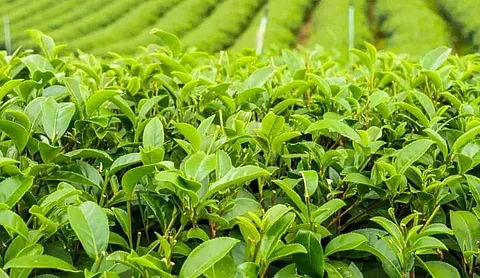
- Home
- Live Blog
- Breaking News
- Top Headlines
- Cities
- NE News
- Sentinel Media
- Sports
- Education
- Jobs

STAFF REPORTER
GUWAHATI: China is pumping inferior tea into India through Nepal. This is one of the reasons why there is a decline in the demand for Indian tea in the national and also the international markets, stated a highly placed source in the Tea sector of the State.
During the last decade, the share of Indian tea production concerning the global scenario remained constant at around 22%; and the country's export share was between 12% and 13% in the international tea market.
Notably, during this same period, China increased its production share from 34% to 45% and its export share from 16% to 19%. Even Kenya increased its export share from 24% to 26% during the mentioned period.
Moreover, the cost of tea production in India reportedly increased to Rs 195 per mkgs (million kgs) in 2020. Due to the low cost of production, the competing countries offer their tea products at a lower price — thereby attracting more buyers for those items.
Tea Board data indicate that 60.35 mkgs of tea were imported into the country during the last three years. Of this, only 23.43 mkgs were re-exported. This indicates that 36.92 mkgs of the imported tea were sold within the country. Such sale is in contravention to sub-para (iii) of paragraph p of the 'Food Safety Standard (Packaging & Labeling) Regulations-2011, added sources.
Notably, India imports tea from Nepal but not from China. However, there are reports of several firms in Nepal blending Chinese produce with its tea consignments exported to India; and also of Chinese companies pumping their tea items into India through Nepal. These moves pose threats to the tea market in India.
Such sale of Nepalese tea in the country has also affected the domestic demand for Assam tea, claimed a tea official. "But there is no proof with us to detect the Chinese blending in Nepal tea in the country," he added.
Assam produces 1,200 mkgs of tea every year, but due to Nepal's entry into the tea market, the sale of Assam tea has declined gradually, pointed out the source.
The relationship between India and Nepal is according to several treaties relating to transit, and trade among other areas. The 'Revised Treaty of Trade' signed in 2009 allows the free and unhampered flow of goods between the two countries. Tea imports from Nepal have been an area of concern as tea from Nepal are reportedly sold in the domestic market as Darjeeling tea — thereby diluting the brand image of Darjeeling Tea and adversely impacting its prices.
"A concentrated effort by the Tea Board along with the Customs, Ministry of Commerce & Industry and FSSAI is required to control the same," said a report prepared by TAI (Tea Association of India), Kolkata during September 2021.
In its report, the TAI said that the import of tea — which is not FSSAI (Food Safety & Standards Authority of India)-compliant — should not be allowed. It adds that there must not be any relaxation in the testing parameters in the interest of the safety and health of the Indian consumers.
The TAI also suggested the mandatory submission of information on imports, re-exports and distribution of imported tea within India every month.
This is particularly so about the imports from countries with which India has PTA (Preferential Trade Agreements), it added.
Tea production in the country has risen from 945 mkgs in 2005 to 1255 mkgs in 2020. It indicates a rise of 33% in the production of tea during the last 15 years. In 2020, tea production in India decreased due to the COVID-19 pandemic. Considering the production of 1,390 mkgs in 2019, the rise in tea production is 47% — this outstrips the tea consumption within the country, leading to stagnant selling prices for the tea plantations.
Also Watch: